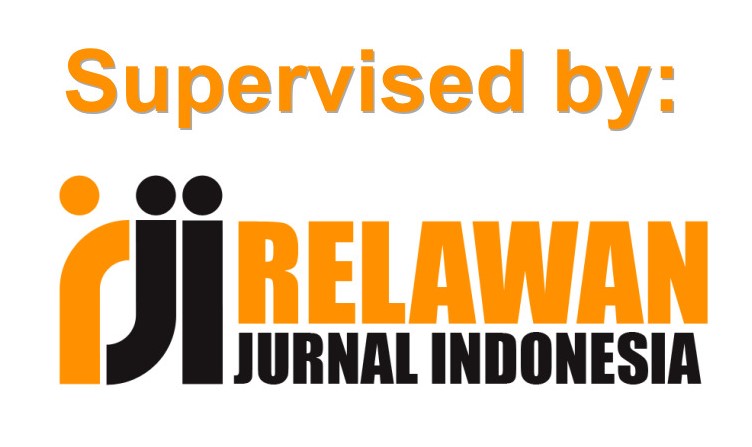Pengaruh Disiplin Ilmu Terhadap Kecenderungan Mahasiswa Dalam Mengakses Informasi Melalui Media Sosial Menggunakan Metode Chi Square
Abstract
Social media becomes necessity that is always consumed by many levels of society to looking for such of information. Social media services provide many features that make users can enjoying seaching in cyberspace. All the level of society, all the level of social background and all the level of professions are very familiar with various social media. Social media services on gadgets have facilities to obtain information quickly and easily, such as Facebook, Instagram, YouTube and etc. This study examines the usage of smartphones to determine whether there is a significant effect of students from various disciplines on the tendency of students to access the information needed to support assignments or to find out the required data through social media. The Chi Square method is used as a testing method to determine the effect of disciplines on student tendencies in accessing information topics through social media. The data analysis gave the measurable results based on quantitative data and interesting information. The results showed that the influence of the field of study on students’ Tendencies depend on intensity time in accessing social media.
Keywords
Full Text:
PDFReferences
DAFTAR PUSTAKA
A. Saputra, “Survei Penggunaan Media Sosial Di Kalangan Mahasiswa Kota Padang Menggunakan Teori Uses and Gratifications,” Baca J. Dokumentasi Dan Inf., vol. 40, no. 2, p. 207, 2019, doi: 10.14203/j.baca.v40i2.476.
S. Fitri, “Dampak Positif Dan Negatif Sosial Media Terhadap Perubahan Sosial Anak,” Nat. J. Kaji. Penelit. Pendidik. dan Pembelajaran, vol. 1, no. 2, pp. 118–123, 2017, doi: 10.35568/naturalistic.v1i2.5.
R. Komalasari, “Manfaat Teknologi Informasi Dan Komunikasi Di Masa Pandemi Covid 19,” 2020. doi: 10.38204/TEMATIK.V7I1.369.
Haryanto , “Pemanfaatan Media Sosial Sebagai Media Komunikasi Komunitas Pustakawan Homogen Dalam Rangka Pemanfaatan Bersama Koleksi Antar Perguruan Tinggi,” Edulib, vol. 5, no. 1, pp. 83–89, 2016, doi: 10.17509/edulib.v5i1.2305.
S. F. Soliha, “Tingkat Ketergantungan Pengguna Media Sosial Dan Kecemasan Sosial,” Interak. J. Ilmu Komun., vol. 4, no. 1, pp. 1–10, 2015, doi: 10.14710/interaksi.4.1.1-10.
Rohma F. Doni, “Perilaku Penggunaan Smartphone Pada Kalangan Remaja,” J. Speed Sentra Penelit. Eng. dan Edukasi, vol. 9, no. 2, pp. 16–23, 2017.
V. W. Sujarweni, SPSS untuk Penelitian. 2014. Pustaka Baru Press.
DOI: http://dx.doi.org/10.30646/tikomsin.v9i1.536
Refbacks
- There are currently no refbacks.
Editorial Office :
TIKomSiN : Jurnal Teknologi Informasi dan Komunikasi Sinar Nusantara
Published by STMIK Sinar Nusantara Surakarta
Address KH Samanhudi 84 - 86 Street, Laweyan Surakarta, Central Java, Indonesia
Postal Code: 57142, Phone & Fax: +62 271 716 500
Website: https://p3m.sinus.ac.id/jurnal/index.php/TIKomSiN
Email: tikomsin @ sinus.ac.id

This work is licensed under a Creative Commons Attribution-NonCommercial-ShareAlike 4.0 International License.










